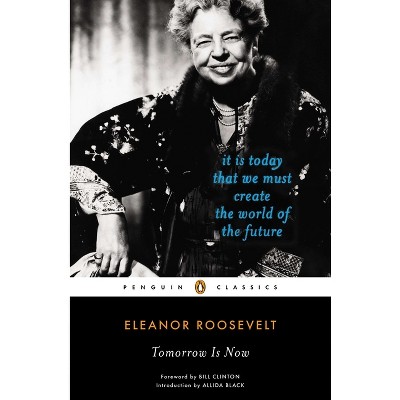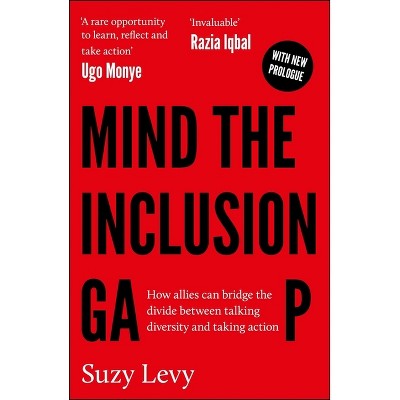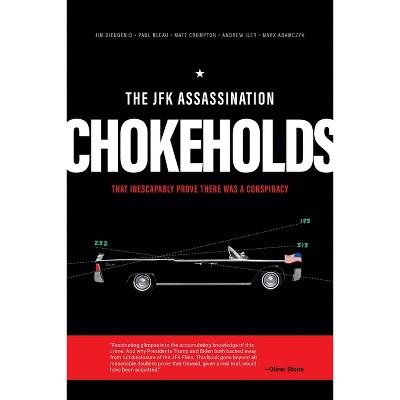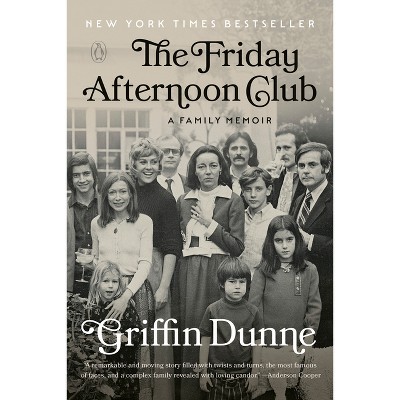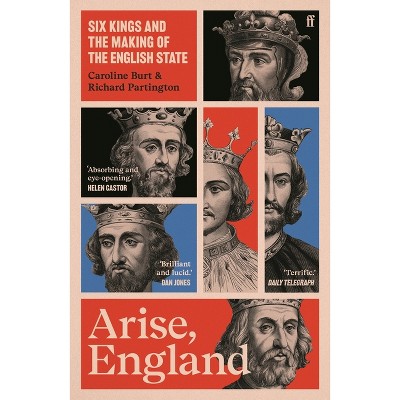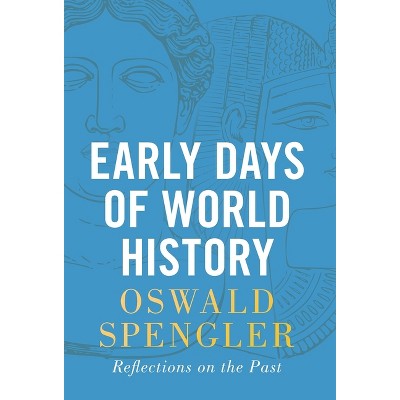Sponsored

JFK, Oswald and Ruby - by Burt W Griffin (Paperback)
In Stock
Sponsored
About this item
Highlights
- In this book, former Warren Commission lawyer Burt Griffin examines anew the Kennedy assassination, its various investigations, its effects on the Cold War and the civil rights movement, and the motives of Lee Harvey Oswald and Jack Ruby.
- About the Author: Burt W. Griffin was the assistant counsel to the president's commission on the assassination of President Kennedy (popularly known as the Warren Commission) and had primary responsibility for investigating and writing the section of the commission's report on whether Jack Ruby was engaged in a conspiracy to assassinate either JFK, Lee Oswald, or both.
- 385 Pages
- History, United States
Description
About the Book
"In this book, former Warren Commission lawyer Burt Griffin examines anew the Kennedy assassination, its various investigations, its effects on the Cold War and the civil rights movement, and the motives of Lee Harvey Oswald and Jack Ruby. Griffin begins with his own skeptical reaction to the assassination, proceeds to the Dallas police investigation, and continues with the efforts of himself and his colleagues to sift truth from those who concealed, withheld, or exaggerated evidence. After nearly six decades of study, Judge Griffin is satisfied that Oswald acted alone. He concludes that violence in the Cold War and civil rights movement caused Oswald to believe that blame for Kennedy's death might be placed on followers of rightwing activist and former U.S. Army general Edwin Walker. Walker was an outspoken enemy of Oswald's idol, Cuban president Fidel Castro, and a firm opponent of racial integration-and Oswald had already attempted to murder Walker in April 1963. The author gives the Walker movement a more prominent place in the assassination story and traces the conflicting ambitions of Walker, Oswald, Kennedy and Ruby as they collided in October and November 1963. This book will help serious readers separate truth from fiction and to become examiners of how insignificant, unsuspected, powerless people driven by very personal needs and fears can, with the help of a firearm, alter the course of history."--Book Synopsis
In this book, former Warren Commission lawyer Burt Griffin examines anew the Kennedy assassination, its various investigations, its effects on the Cold War and the civil rights movement, and the motives of Lee Harvey Oswald and Jack Ruby. Griffin begins with his own skeptical reaction to the assassination, proceeds to the Dallas police investigation, and continues with the efforts of himself and his colleagues to sift truth from those who concealed, withheld, or exaggerated evidence.
After nearly six decades of study, Judge Griffin is satisfied that Oswald acted alone. He concludes that violence in the Cold War and civil rights movement caused Oswald to believe that blame for Kennedy's death might be placed on followers of rightwing activist and former U.S. Army general Edwin Walker. Walker was an outspoken enemy of Oswald's idol, Cuban president Fidel Castro, and a firm opponent of racial integration--and Oswald had already attempted to murder Walker in April 1963. The author gives the Walker movement a more prominent place in the assassination story and traces the conflicting ambitions of Walker, Oswald, Kennedy and Ruby as they collided in October and November 1963. This book will help serious readers separate truth from fiction and to become examiners of how insignificant, unsuspected, powerless people driven by very personal needs and fears can, with the help of a firearm, alter the course of history.
Review Quotes
"[A] clear and concise analysis of a complicated topic...provides an insightful view that is easily understood by the novice student of the assassination as well the seasoned JFK researcher... [and] brings a new and well-documented perspective to a subject that is quickly fading in the minds of millions of Americans."-Cool Cleveland
"A humdinger...Griffin does a superb job in presenting the facts...a must-read...highly recommended...[Griffin] has done the world a great service with his book. Few people are alive today who could provide the unique perspective and intuitive insight that he brings to the subject."-JFK Files
"Brings a new and well-documented perspective to a subject that is quickly fading in the minds of millions of Americans... Well-illustrated with a plethora of original photographs and diagrams."-Cleveland Metropolitan Bar Journal
"Burt Griffin writes with the authority and confidence of someone in complete control of the tumultuous history of the JFK assassination. Benefiting from his service as the Warren Commission's assistant counsel, Griffin provides a fresh and page-turning account of America's most infamous political murder. JFK, Oswald and Ruby is accessible both for those who have never read about the case as well as for veteran assassination researchers. Griffin's most important contribution is presenting a credible explanation of how the turbulent politics and social divisions of the early 1960s fueled the lethal motives for 'two powerless but ambitious people, ' Lee Harvey Oswald and Jack Ruby. Burt Griffin has performed a public service in JFK, Oswald and Ruby."-Gerald Posner, author of Case Closed
"Comprehensive...readers of Griffin's book may discover much they didn't know...rich and interesting...any history buff will love this book, particularly if Cold War history is your thing."-Currents
"One of Burt Griffin's law school classmates once told me the primary reason he believed the Warren Report was because Griffin had been a member of the commission's staff, and that he would not have been party to an inadequate, corrupt, or incompetent investigation. True to form, in JFK, Oswald and Ruby, Griffin delivers a reality check to those who distort the truth for profit, out of bias or ideology, or through sheer ignorance. The Ruby dimension gets short-changed in many books about the assassination of President Kennedy. Not here."-Max Holland, author of The Kennedy Assassination Tapes
"The Warren Commission was a search for truth complicated by politics. For Burt Griffin and his fellow fifteen staff members who did most of the investigative work of the Commission, truth alone was important. Meanwhile, the public, after Oswald's murder at the hands of Jack Ruby, lost sight of the importance of the Cold War and civil rights to all parties interested in the assassination-including themselves. By highlighting JFK's murder as collateral damage from the passions of anticommunism and civil rights of the media, two assassins, JFK himself, and Americans generally, Burt Griffin could not have written a timelier book. He penetrates the fog of conspiracy that has obscured the true triggers behind the two assassins of 1963: the context of uncivil and unhinged passion, no less murderous today, as Griffin reminds us in this important book."-Richard A. Reiman, professor of history, South Georgia State College, and historian of the JFK assassination in American memory
About the Author
Burt W. Griffin was the assistant counsel to the president's commission on the assassination of President Kennedy (popularly known as the Warren Commission) and had primary responsibility for investigating and writing the section of the commission's report on whether Jack Ruby was engaged in a conspiracy to assassinate either JFK, Lee Oswald, or both. He lives in Shaker Heights, Ohio.Shipping details
Return details
Frequently bought together


Trending Non-Fiction






